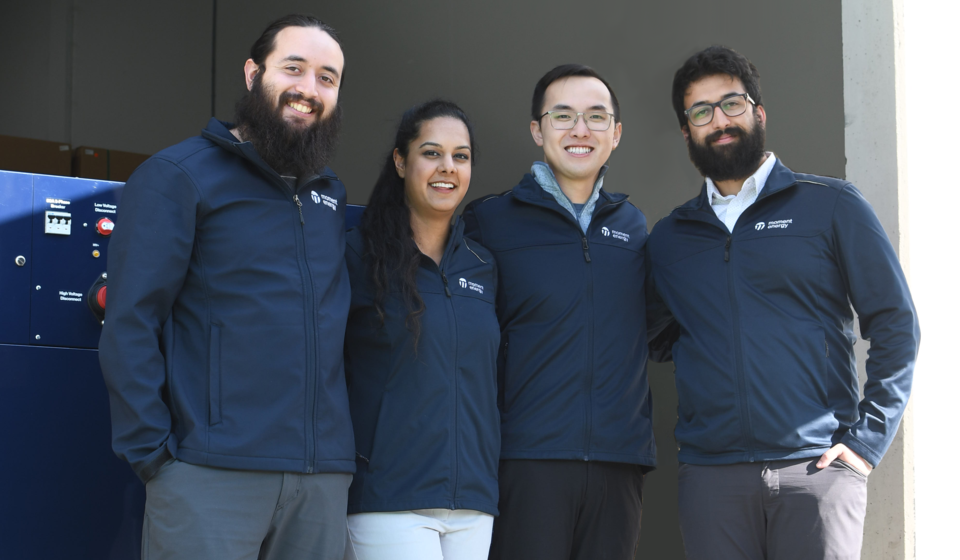A B.C. cleantech company that repurposes spent EV batteries to make larger-scale energy storage systems may be joining another B.C. cleantech company, Ballard Power (TSX:BLDP), in Texas.
Moment Energy today announced it has received $28 million (US$20.3 million) grant from the U.S. Department of Energy to locate a new manufacturing plant in Taylor, Texas. It is also eligible for another US$6 million in tax credits.
Ballard Power, meanwhile, has received up to US$94 million in U.S. government funding awards to build a $220 million fuel cell manufacturing plant in Rockwell, Texas.
Moment Energy’s new US$34 million Texas manufacturing plant would have an annual production capacity of one gigawatt hours of energy storage and would employ 200 people.
Based in Coquitlam, Moment Energy started in 2020 as a four-person startup to deal with the growing problem of used electric vehicle batteries.
It currently employs 40 people at its Coquitlam plant, and plans to double its headcount through an expansion. In addition to building a new manufacturing plant in Texas, Moment Energy is planning an expansion of its B.C. manufacturing capacity as well.
“We’re looking for a much larger facility,” Moment Energy co-founder and CEO Edward Chiang told BIV News.
“The facility in Coquitlam, as we continue expanding it, will be our main test and engineering facility,” he said. “We’ll still be manufacturing a lot as well, at a much higher capacity than we do today. The Texas facility is also enabling us to manufacture at an even larger scale.”
The lithium-ion batteries used in EVs have a lifespan of about 10 years before they begin to degrade in storage capacity. Recycling them is just too expensive.
And while the batteries may no longer have sufficient storage capacity for cars, they can be chained together into larger battery energy storage systems (BEES) that can be used by industries or power utilities for load balancing and peak shaving — the process of smoothing out electricity flows by using battery storage to deal with demand peaks.
Texas has a lot of wind power, which needs large-scale battery storage, so there's a built-in market for energy storage there. Chiang also said Texas has a good technology and manufacturing talent pool.
“There’s a great amount of talent there,” he said. “Tesla’s already there. Samsung has a really big battery manufacturing (facility) there, as well. Ballard’s moving. There’s a lot of great concentration of talent, and a lot of cross-training.”

